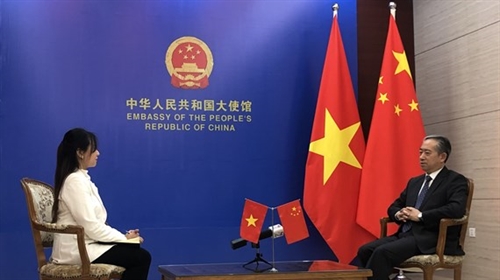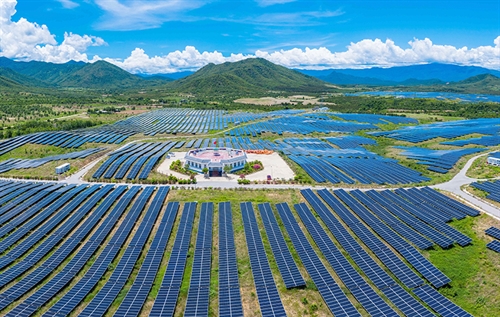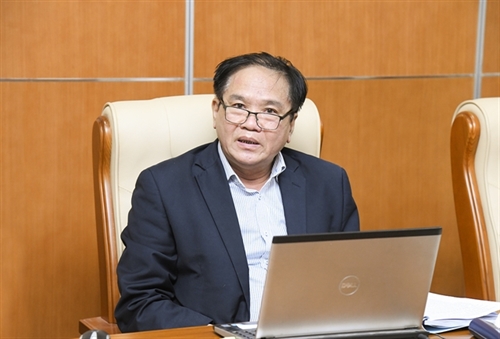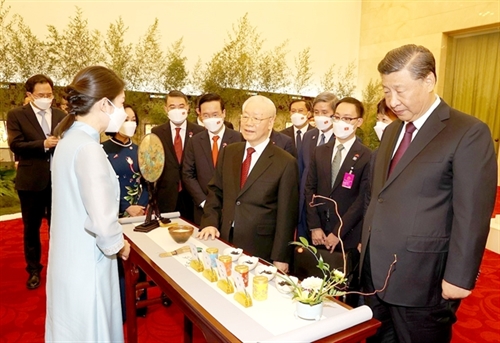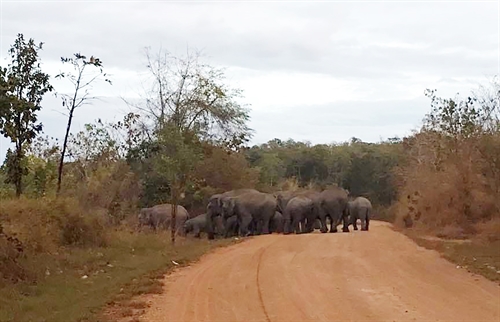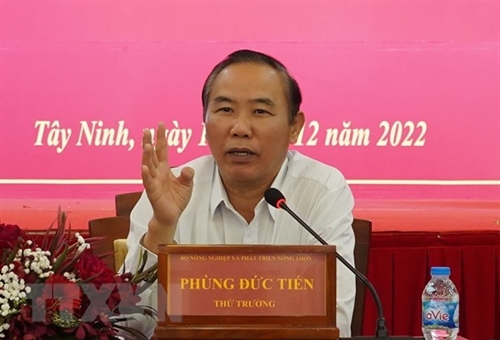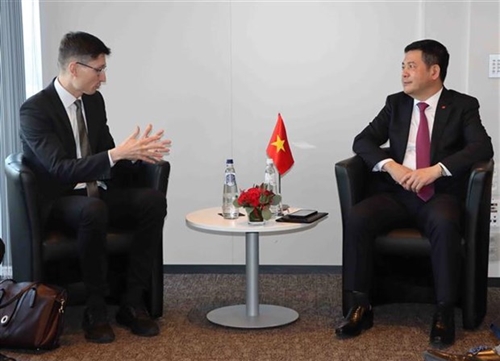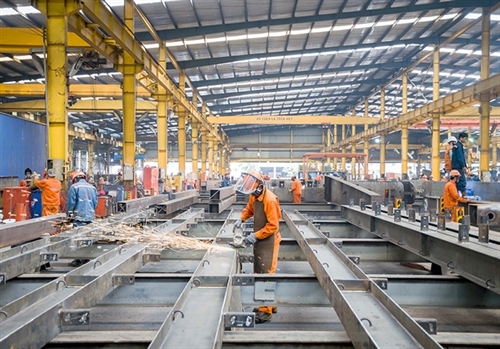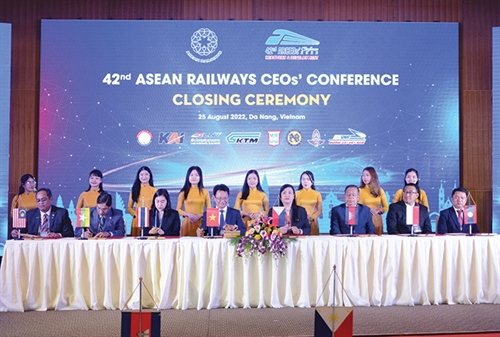The 2013 Land Law has provisions aiming to narrow down the gap in land access between foreign and local land users. Nevertheless, those provisions still reveal shortcomings and therefore need to be revised for attracting more foreign investment in Vietnam. This article provides an evaluation of current land regulations applicable to foreign entities investing in Vietnam and proposes some amendments to the land legislation so as to guarantee the rights of foreign investors in the country.
Assoc. Prof., Dr. Nguyen Quang Tuyen[1]
The 1987 Land Law was enacted right after the sixth National Party Congress that launched the renewal cause in 1986. Since then, the Law has undergone many revisions with a view to establishing a solid legal basis to facilitate foreign investors’ access to land for implementing their investment projects in Vietnam. Specifically, the 1987 Land Law has been replaced by the 1993 version (revised in 1998 and 2001), the 2003 version, and the 2013 version.
The 2013 Land Law retains the provisions on lease of land to foreign organizations and individuals and overseas Vietnamese with remarkable improvements in order to narrow down the gap in land access between foreigners and domestic organizations, households and individuals as land users. However, these provisions and relevant regulations have so far revealed limitations and therefore need further revision so as to attract more foreign investors.
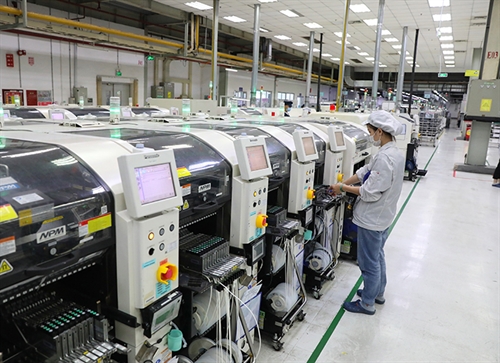 |
| Inside a workshop of Taiwan-invested Fuhong Precision Component Co. in Dinh Tram industrial park, Bac Giang province__Photo: Danh Lam/VNA |
Evaluation of current land policies and regulations applicable to foreign entities investing in Vietnam
Pluses
Firstly, land policies and regulations applicable to foreign-invested projects have institutionalized the Party’s viewpoint on continued renovation of land policies and regulations in the period of comprehensive renewal. Projects on foreign investment in spheres eligible for investment incentives and those in areas with socio-economic difficulties or extreme socio-economic difficulties are entitled to such incentives as land rental or land use tax exemption or reduction and concessional loans. As the Party’s consistent guideline is not to trade the environment for economic development at any cost, the land law requires appraisal of environmental impact assessment reports of foreign-invested projects before a competent authority decides on the lease of land to such projects. Meanwhile, foreign-invested projects that are likely to pollute the environment or use outdated technologies causing environmental pollution or exhaustedly exploit components of the natural environment will not be entitled to land lease, land sub-lease, or acquisition of land use rights in industrial parks, economic zones or hi-tech parks.
Secondly, land policies and regulations applicable to foreign-invested projects, with legal measures to protect the rights of land users in general and the rights of land-using foreign investors in particular, have helped guarantee the lawful rights and interests of project owners in the use of land for project implementation in Vietnam. Specifically, foreign investors using land in Vietnam may be granted land use rights certificates, and enjoy the compensation, support and resettlement regime when the State recovers land for national defense and security purposes or for socio-economic development in the national and public interests, etc.
Thirdly, land policies and regulations applicable to foreign-invested projects have contributed to shaping a legal framework for the State’s law-ruled land administration, enabling foreign-invested enterprises to access land for their project implementation in the following forms:
(i) Land lease by the Vietnamese State with annual land rental payment or with one-off land rental payment for the entire lease term; or land allocation by the Vietnamese State with land use levy payment for implementation of investment projects to build houses for sale or for sale and lease;
(ii) Land sub-lease in industrial parks, export processing zones or hi-tech parks by Management Boards of such parks or zones with annual land rental payment or with one-off land rental payment for the entire lease term; or acquisition of land use rights in industrial parks, export processing zones or hi-tech parks.
The land legislation also provides grounds for land allocation, land lease and land repurposing; cases of land allocation with or without land use levy payment; land lease; forms of land allocation and land lease; competence to allocate or lease land; and financial obligations of foreign-invested enterprises toward the Vietnamese State when being allocated or leased land, etc. This not only ensures publicity and transparency in land administration but also prevents the abuse of legal loopholes to cause harassment or take negative practices.
Fourthly, land policies and regulations applicable to foreign-invested projects transparently provide administrative procedures in land management and use in general and procedures for getting land access to implement foreign-invested projects in Vietnam in particular. This has contributed to reducing costs for investors in getting access to land to carry out investment, production and business activities, making the business investment environment more attractive, encouraging multinational technology corporations and economic groups to invest in manufacturing projects in Vietnam, and improving the national competitiveness.
Minuses
Beside the aforementioned achievements, land policies and regulations applicable to foreign-invested projects still reveal limitations.
One of the shortcomings is that there remain inconsistencies in the provisions concerning the rights of foreigners in land use. Specifically, the 2014 Housing Law allows foreigners to own houses in Vietnam[2], while the 2013 Land Law does not recognize foreigners as land users[3]. Also, Chapter 11 of the Land Law[4] keeps silent about rights and obligations of foreigners using land areas with houses thereon. This makes foreigners feel insecure when implementing their long-term investment projects in Vietnam.
“1. Organizations, households, individuals, resident communities, religious establishments, overseas Vietnamese, and foreign-invested enterprises may not receive transferred or donated land use rights in case such transfer or donation is not allowed in accordance with law;
2. Economic organizations may not acquire use rights for land for rice cultivation, land of protection forests or land of special-use forests of households and individuals, unless the land repurposing is permitted under approved land use master plans and plans”.
Another limitation lies in the scope of real estate business is narrower for overseas Vietnamese and foreigners than that for domestic organizations and individuals. Specifically, overseas Vietnamese and foreigners are allowed to buy houses only for personal residence but not for lease or lease-purchase to earn profits. This restriction does not apply to domestic organizations and individuals.
Foreign-invested enterprises may invest in and commercially operate infrastructure facilities in industrial parks and export processing zones, then lease or sub-lease such infrastructure facilities to make profits. Whereas, domestic economic organizations may: (i) transfer or lease land use rights; (ii) build houses or invest in ready-built works for sale, lease or lease-purchase to earn profits; or (iii) sell or lease-purchase future houses or construction works to gain profits. The restriction imposed by land policies on foreign-invested projects in Vietnam has affected the efficiency of projects and creates a barrier to land access by foreign investors.
Rights and obligations of foreign land users under the land policies and regulations applicable to foreign-invested projects in Vietnam[5]
The draft revised Land Law (the draft Law) has recently been put for public comment for the second time. The rights and obligations of overseas Vietnamese and foreign-invested economic organizations as land users are specified in Section 4 of Chapter III - Rights and obligations of land users[6]. Regarding the interpretation of terms concerning the rights and obligations of overseas Vietnamese and foreign-invested economic organizations as land users in the draft Law, the author gives some comments below:
First, the draft Law uses the term “foreign-invested economic organization” while the 2013 Land Law uses the term “foreign-invested enterprise using land in Vietnam”[7]. As defined in Article 6 of the draft Law, foreign-invested economic organization means a specific land-using entity as a land user. However, Article 3 - Wording - of the draft Law, does not provide an official interpretation of foreign-invested economic organization. The question is whether the definition of foreign-invested economic organization in the draft Law is similar to that referred to in the 2020 Law on Investment, the 2020 Law on Enterprises and other relevant laws. The author suggests that Article 3 of the draft Law be added with the term “foreign-invested economic organization using land” so as to ensure consistent understanding of the term, thereby enabling the uniform application of the Law once it is passed by the National Assembly and comes into force.
Second, Article 47 of the draft Law provides the rights and obligations regarding residential land use by overseas Vietnamese who are allowed to own houses in Vietnam and foreigners or overseas Vietnamese who are not allowed to buy houses associated with residential land use rights in Vietnam. Nevertheless, Article 5 of the draft Law regarding land users mentions neither overseas Vietnamese who are allowed to own houses in Vietnam nor foreigners or overseas Vietnamese who are not allowed to buy houses associated with residential land use rights in Vietnam. For that reason, the author recommends:
(i) Adding to Article 5 of the draft Law land users being overseas Vietnamese who are allowed to own houses in Vietnam and foreigners or overseas Vietnamese who are not allowed to buy houses associated with residential land use rights in Vietnam, in order to ensure compatibility with Article 47; and,
(ii) Adding to Article 3 of the draft Law the term “overseas Vietnamese allowed to own houses in Vietnam”, and the term “foreigners or overseas Vietnamese not allowed to buy houses associated with residential land use rights in Vietnam”.
Regarding the scope of real estate business for foreign-invested enterprises: As per the 2014 Housing Law and the 2014 Law on Real Estate Business, the scope of real estate business in general and house trading in particular for foreign-invested enterprises is narrower than that for local economic organizations. Specifically, foreign-invested enterprises may only: (i) rent houses and construction works for sub-lease; (ii) build houses and construction works on land for sale, lease or lease-purchase, for land with land use rights recognized by the State; (iii) acquire the whole or part of real estate projects to build houses and construction works for sale, lease or lease-purchase; and (iv) build houses on land for sale, lease or lease-purchase, for land allocated by the State.
The above provisions show that there remains inequality in real estate business investment activities between local economic organizations and foreign-invested enterprises and that the business investment environment in Vietnam is not attractive enough to foreign investors. To deal with this, the author proposes revising the relevant provisions of the 2013 Land Law, the 2014 Housing Law and the 2014 Law on Real Estate Business. Specifically, Article 11 of the 2014 Law on Real Estate Business should be added with:
- A provision permitting foreign-invested enterprises to build houses on land for sale, lease or lease-purchase, for land allocated by the State with land use levy payment, so as to ensure consistency with Article 45 of the draft Law;
- A provision allowing foreign-invested enterprises to build houses and construction works on land for sale, lease or lease-purchase, for land acquired from organizations, households and individuals;
- A provision enabling foreign-invested enterprises to build houses and construction works on land for lease according to designated land use purposes, for land rented from organizations, households and individuals; and,
- A provision entitling foreign-invested enterprises to acquire or rent land use rights from organizations, households and individuals for building technical infrastructure facilities for the transfer or lease of land areas on which such technical infrastructure facilities are built.-
[1] Vice Chairman of the Council-cum-Dean of the Faculty of Economic Law, the Hanoi Law University.[2] Articles 159 and 161 of the 2014 Housing Law.[3] Article 5 of the 2013 Land Law.[4] This Chapter, consisting of Articles 166 thru 194, provides the rights and obligations of land users.[5] This section is written in reference to the article “Commenting on the provisions on the rights and obligations of overseas Vietnamese and foreign-invested economic organizations as land users in the draft revised Land Law” of Assoc. Prof. Dr. Nguyen Quang Tuyen and postgraduate student Chu Van Khanh.[6] This Section has six articles, namely Articles 43 thru 48.[7] Article 5.7 of the 2013 Land Law.

